- Home
- Parnell Hall
A Clue for the Puzzle Lady
A Clue for the Puzzle Lady Read online
Raves for Cora Felton’s Debut
in Parnell Hall’s A Clue for the Puzzle Lady
“DEFT … CLEVER … FUN.”
—Booklist
“The real lure here is the mystery, whose ingenuity takes quite unexpected forms en route to the final unmasking. HEAVEN FOR CROSSWORD FANS, who’ll rejoice over the solve-as-you-go puzzle!”
—Kirkus Reviews
“CORA FELTON IS A DELIGHTFULLY DIFFERENT SORT OF SLEUTH—hardly the decorous, tea-sipping village spinster. In truth, she’s a hoot. I hope her niece can keep her out of too much trouble so that we can all savor future adventures of The Puzzle Lady.”
—Joan Hess, author of the Claire Malloy and Maggody mystery series
“Parnell Hall’s superb new series DAZZLES LIKE THE 4th OF JULY, CRACKLING WITH FUN WORDPLAY, more twists than a maze, and a clever, vulnerable, wild woman sleuth—Cora Felton, The Puzzle Lady. Sheer delight!”
—Carolyn Hart, author of the Death on Demand and Henrie O mystery series
“A twisting plot, an intriguing puzzle, and a surprisingly satisfying romance. THIS ONE IS HARD TO BEAT.”
—Janet Evanovich
“A fresh series with an engaging sleuthing duo … A LIGHT-HEARTED ROMP.”
—Alfred Hitchcock Mystery Magazine
“A fun and entertaining story to challenge all mystery readers … A great premise … lively characters, an intriguing plot and well written story.”
—Rendezvous
“A Clue for the Puzzle Lady is GOING TO PLEASE PUZZLE FANS AND MYSTERY LOVERS ALIKE.”
—Romantic Times
Bantam Books
by Parnell Hall
A Clue for the Puzzle Lady
Last Puzzle & Testament
Puzzled to Death
A Puzzle in a Pear Tree
With This Puzzle I Thee Kill
This edition contains the complete text of the original hardcover edition.
NOT ONE WORD HAS BEEN OMITTED.
A CLUE FOR THE PUZZLE LADY
A Bantam Book
PUBLISHING HISTORY
Bantam hardcover edition / 1999
All rights reserved.
Copyright © 1999 by Parnell Hall
No part of this book may be reproduced or transmitted in any form or by any means, electronic or mechanical, including photocopying, recording, or by any information storage and retrieval system, without permission in writing from the publisher.
For information address: Bantam Books.
eISBN: 978-0-307-77957-1
Published simultaneously in the United States and Canada
Bantam Books are published by Bantam Books, a division of Random House, Inc. Its trademark, consisting of the words “Bantam Books” and the portrayal of a rooster, is Registered in U.S. Patent and Trademark Office and in other countries. Marca Registrada. Bantam Books, New York, New York.
v3.1
For Stanley,
who loved a good puzzle.
Contents
Cover
Other Books by This Author
Title Page
Copyright
Dedication
Chapter 1
Chapter 2
Chapter 3
Chapter 4
Chapter 5
Chapter 6
Chapter 7
Chapter 8
Chapter 9
Chapter 10
Chapter 11
Chapter 12
Chapter 13
Chapter 14
Chapter 15
Chapter 16
Chapter 17
Chapter 18
Chapter 19
Chapter 20
Chapter 21
Chapter 22
Chapter 23
Chapter 24
Chapter 25
Chapter 26
Chapter 27
Chapter 28
Chapter 29
Chapter 30
Chapter 31
Chapter 32
Chapter 33
Chapter 34
Chapter 35
Chapter 36
Chapter 37
Chapter 38
Chapter 39
Chapter 40
Chapter 41
Chapter 42
Chapter 43
Chapter 44
Chapter 45
Chapter 46
Chapter 47
Chapter 48
Chapter 49
Chapter 50
Chapter 51
Chapter 52
Chapter 53
Chapter 54
Chapter 55
Chapter 56
Chapter 57
Chapter 58
Chapter 59
Chapter 60
Solution
About the Author
A Puzzle from the Puzzle Lady
I am pleased to be able to include the following crossword puzzle, compliments of the Puzzle Lady. Miss Felton and I hope you enjoy it.
A word of caution: Since solving the puzzle will identify the killer, you should not do so until after reading the book. You would probably not be able to anyway, as several of the clues are based on a knowledge of the story.
The answers may be found in the back of the book.
A CLUE FOR THE PUZZLE LADY
by Miss Cora Felton
ACROSS
1 Sonny, or lead singer of rock group mentioned on CRUCIVERB-L
5 Minimal lot size on Cold Springs Road
9 Operated
12 Sherry to Cora
13 Ed Sullivan’s really big ones?
15 Lounge or pony
16 Crime scene
18 Surprise attack
19 Open on the victim
20 A long time
21 A-frames, for instance
23 Deer
24 Very French
25 The 60s, e.g.
28 Foamy wave
32 Foe
33 Cereal
34 Soft drink
35 Early man
36 Fork end
37 Motel rental
38 Finish last
39 Skating locale
40 _______ off (repel)
41 Probable action of Barbara Burnside’s car
43 Pined for or played college prank
44 Skin rash or small dwelling
45 John Dickson
46 Ebert milieu
49 Single
50 Expire
53 Type of code
54 Graveyard Killer
57 What this book should be
58 Keen
59 Put up
60 Type of training
61 Shade of color
62 Night light
DOWN
1 What Aaron wouldn’t dare call Sherry
2 All right
3 Shoes worn by murder victim
4 Number of shots fired
5 Not at sea
6 Intone
7 Guns the engine
8 Answer to 14) A
9 Surface left by Kevin Roth
10 “I Cannot tell____ ”
11 Gets sleepy
14 Entrapping
15 Chief Harper’s antagonist
17 Prepared
22 Wager
23 Murder weapon part
24 What Oscar winners seem obliged
to do
25 What Billy Spires undoubtedly offered
26 Bestow
27 Stop
28 What Johnnie done to Frankie
29 Schwarzenegger role
30 Not dead
31 Narrow on one end, wide on the other
33 Salt water
36 None of your business
40 Lesions
; 42 Vigor’s cohort
43 Fertilizer
45 Songwriter Leonard
46 Give a damn
47 Rages
48 Way to drink whiskey
49 Child’s building set
50 Hamlet, for one
51 “Do not go gentle____that good night”
52 Garden for 35 across
55 Tipped to show respect
56 Forbid
1
The first clue came with a corpse.
The body lay next to a gravestone in the Bakerhaven Cemetery.
Police Chief Dale Harper stood in the pouring rain and looked down at it with displeasure. What was a corpse doing in the cemetery? Chief Harper was not unaware of the humor in the question. A body in the cemetery—the press would have a field day. Chief Harper frowned and wiped the water off his face.
The body was that of a young girl in her late teens or early twenties. She was lying facedown with her head twisted to the side. Her left eye was open. Chief Harper wished he could close it. It was eight in the morning, he had barely had his coffee, and the sight of her made him queasy. What in the world was she doing there?
And why was she in the cemetery? If she’d only been on the other side of the fence, not a hundred yards away, she’d have been in the township of Clarksonville, and he wouldn’t have gotten the call that dragged him away from the breakfast table before his toast had even popped, on a rainy Monday morning the last day in May.
But, no, this corpse fell under his jurisdiction. The good citizens of Bakerhaven would expect him, as chief of police, to do something about it. It was up to him to find out who killed her and why. At the moment, he didn’t even know who she was.
“Never seen her before,” the caretaker said.
It was the fourth or fifth time he’d said so. A shriveled little man with a somewhat belligerent nature, Fred Lloyd had found the body when he’d arrived for work this morning. He’d driven in the gate, and his headlights had picked up the girl’s silhouette. He’d called the police station, the cop on duty had called the chief, and now Lloyd and Harper were standing together in the cemetery in a drenching rain.
“So you said.” Chief Harper knew he should interview Mr. Lloyd, but at the moment he couldn’t think of a thing to ask him. The guy had found the body, he’d never seen the girl before, and what else was there?
Chief Harper wasn’t entirely up on procedure because murders just didn’t happen in Bakerhaven, Connecticut. Waterbury or Danbury, sure, those were big cities, they had their share of crime. Bakerhaven was one of those small, quiet, respectable towns where nothing much happened. There had not been a murder in Bakerhaven in the year and a half that Dale Harper had been chief. So he was not entirely sure what to do.
One thing he knew was he couldn’t touch the body until the medical examiner got there. The ambulance he’d called for had arrived, and the paramedics had confirmed what he already knew, that the girl was dead. But they couldn’t take her away until the medical examiner saw her, and Barney Nathan, the notorious stick-in-the-mud who served that function, was undoubtedly taking his own sweet time finishing up his breakfast before venturing out on a morning like this to stand in the cemetery in the rain. The paramedics had gone back to the shelter of their ambulance. Chief Harper hunched his orange slicker up over his neck, wished he were somewhere else.
The phone bleeped.
Chief Harper reached under his slicker, fished out the cellular phone, flipped it open, said, “Hello?”
“Dale?”
Chief Harper sighed. His wife. “Yes, dear.”
“You ran out on breakfast. Is everything all right?”
“I can’t talk now. I’m out in the rain.”
“Clara’s upset. She doesn’t want to go to school.”
“I can’t deal with that now.”
“What shall I tell her?”
“Tell her to go to school.”
“Dale.”
“Ellen. I’m in the cemetery. A young girl is dead.”
“Oh, my God. Who?”
“It’s no one we know. I can’t talk now. Tell Clara if she doesn’t go to school she’ll miss all the gossip. The phone’s getting wet. I gotta go.”
A car drove through the cemetery gate, stopped behind the police car. An umbrella popped out from the driver’s door, mushroomed open. The trim figure of Barney Nathan emerged. Despite the early hour and the rain, Dr. Nathan was nattily dressed in a blue suit, white shirt, and red bow tie. He would have looked more in place on the dais of a medical convention than at the scene of a homicide.
If this was a homicide.
Dr. Nathan stepped carefully through the streams of water up to the two men. “What do we have here?”
“You tell me,” Chief Harper said.
“You mean you haven’t touched it yet?”
“Just to make sure she’s dead. Aside from that, we’ve all been waiting for you.”
If Dr. Nathan took that as a pointed remark, he didn’t acknowledge it. He went over to the grave, bent down beside the body. Examined it with one hand, while holding the umbrella with the other. After a few moments he straightened up.
“Okay. Let’s get her out of here.”
“So what do you think?”
Dr. Nathan’s smile was superior. “Much too soon to tell. I’ll have to do a postmortem.”
“Any idea when she died?”
“That’s what I’ll be trying to determine. Okay, that’s all I need here. They can take her away.”
“In other words, I can touch the body,” Chief Harper said.
“With all due care. I still have to determine the cause of death.”
“Yes, of course. I’d also like to know who she is.”
Chief Harper rolled the body over.
The girl was wearing a cotton pullover and blue jeans. No shoes or socks. Harper felt in the hip pockets, looking for an ID, but they were empty. The right front pocket had some cash. Eight dollars in bills and some change. He put it back.
The left front pocket appeared empty, but proved to contain a folded piece of paper. Chief Harper slid it out in his cupped hand, and looked up to see Barney Nathan standing there watching him.
Which irritated him. Granted, Chief Harper had never liked the man, but it was more than that. Chief Harper had waited for the doctor, held everyone off, shown him the proper respect for his office. In return, Dr. Nathan had not given him the time of day, and was now looking over his shoulder, poking his nose into police business, as if insinuating he didn’t trust him to do his job.
This particularly grated since Chief Harper wasn’t all that confident about doing his job in the first place.
Which is why, instead of opening the paper, Chief Harper palmed it and casually slid it into his pants pocket as he straightened up.
“Okay, you can take her,” he said.
“You find anything?” Dr. Nathan said.
“She’s got no ID on her.”
“That should make it more difficult.” Dr. Nathan gestured to the two medics in the ambulance to bundle up the body.
“Where they taking her? The hospital?”
“No. My office. I have one of the rooms set up for autopsies.”
“Uh huh,” Chief Harper said. As he watched Barney Nathan walk off, he couldn’t help wondering how much the good doctor charged the town for the service.
With the umbrella gone, Chief Harper was getting soaked. He gave way for the paramedics, nodded to the caretaker, and plodded through the mud over to his police cruiser. He hopped in the front seat, started the car, turned the heater up. He snuffled, found a tissue, blew his nose. It occurred to him it would be just his luck to catch a cold.
Dr. Nathan had already driven off. Watching him go, Chief Harper reached in his pocket, and pulled out the piece of paper he’d taken from the pocket of the girl.
He knew it was probably nothing. And he was not entirely sure why he had concealed it from the doctor. With low expectations, he
unfolded the paper.
It was an ordinary piece of lined notebook paper.
Chief Harper looked at it and blinked.
On it was written in ballpoint pen:
4) D – LINE (5).
Chief Harper shook his head. Just his luck. A dead body in the graveyard wasn’t enough. He had to get an enigmatic clue.
Chief Harper sighed, wondered what it meant.
2
After the ambulance left, Chief Harper took a crime scene ribbon out of the trunk of his police car and went back and cordoned off the grave. He considered it a futile gesture and felt stupid doing it; still it had to be done.
Chief Harper had no stakes on which to hang the ribbon, so he wrapped it around the gravestones. It encircled nine graves, eight on the perimeter, and one inside, the one where the girl had lain, the one that was just a mud puddle now.
When he was done he got in his car and drove back to town.
Bakerhaven, Connecticut, was one of those small towns you could drive right through and never see a store. Not that they weren’t there, they simply weren’t conspicuous. Discreet, hand-painted signs were all that distinguished the shops from the private homes. Of course, most of the shops were private homes, with the proprietors living upstairs.

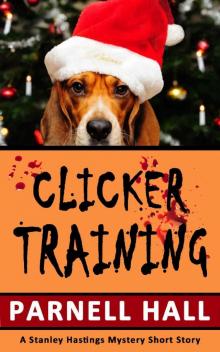 Clicker Training
Clicker Training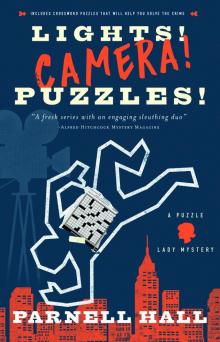 Lights! Camera! Puzzles!
Lights! Camera! Puzzles!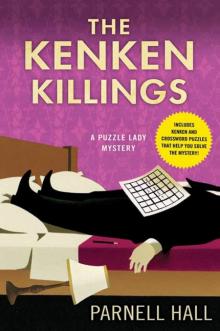 The KenKen Killings
The KenKen Killings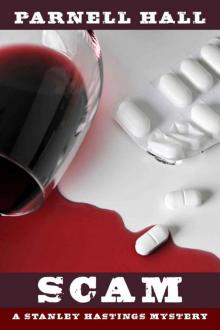 12-Scam
12-Scam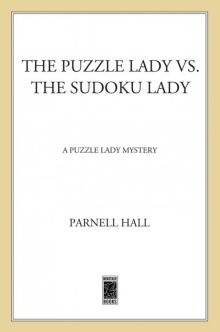 The Puzzle Lady vs. the Sudoku Lady
The Puzzle Lady vs. the Sudoku Lady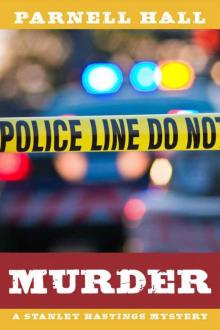 2 Murder
2 Murder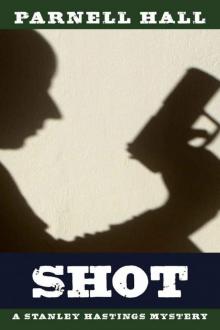 7 Shot
7 Shot You Have the Right to Remain Puzzled
You Have the Right to Remain Puzzled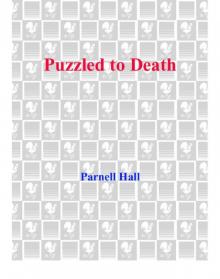 Puzzled to Death
Puzzled to Death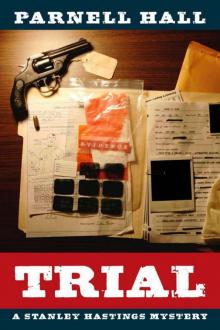 11-Trial
11-Trial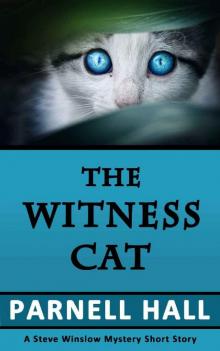 The Witness Cat (Steve Winslow Mystery)
The Witness Cat (Steve Winslow Mystery)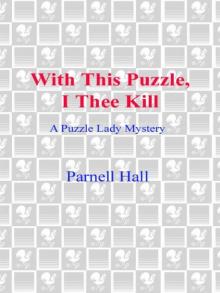 With This Puzzle, I Thee Kill
With This Puzzle, I Thee Kill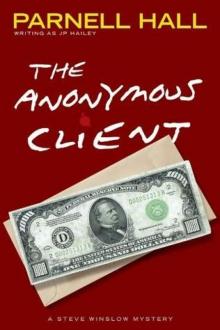 The Anonymous Client sw-2
The Anonymous Client sw-2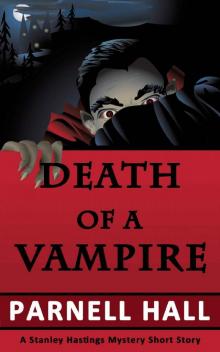 Death of a Vampire (Stanley Hastings Mystery, A Short Story)
Death of a Vampire (Stanley Hastings Mystery, A Short Story)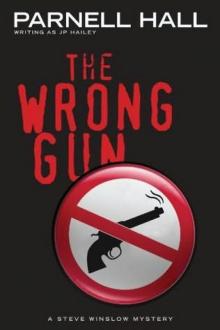 The Wrong Gun sw-5
The Wrong Gun sw-5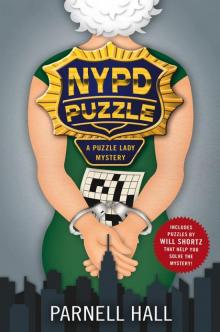 NYPD Puzzle
NYPD Puzzle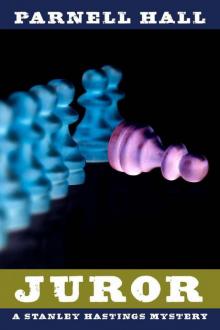 6 Juror
6 Juror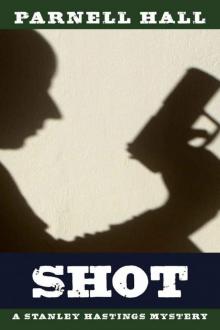 07-Shot
07-Shot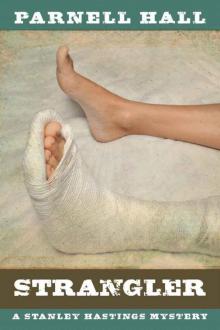 04-Strangler
04-Strangler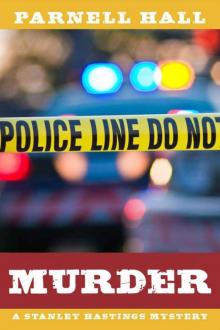 02-Murder
02-Murder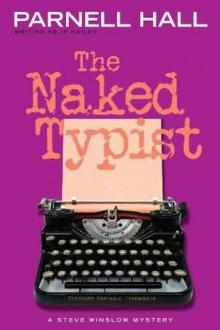 SW04 - The Naked Typist
SW04 - The Naked Typist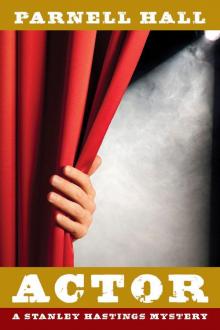 Actor
Actor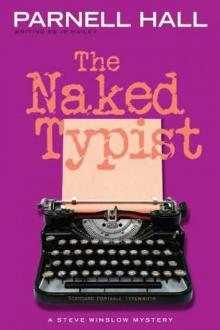 The Naked Typist sw-4
The Naked Typist sw-4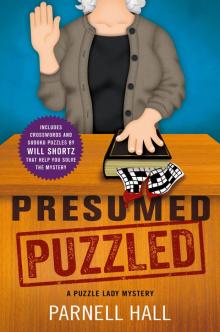 Presumed Puzzled
Presumed Puzzled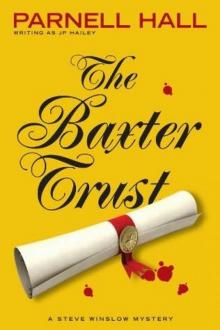 SW01 - The Baxter Trust
SW01 - The Baxter Trust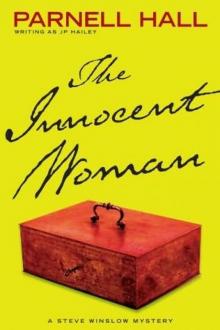 SW06 - The Innocent Woman
SW06 - The Innocent Woman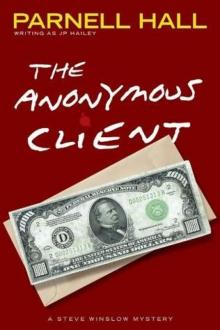 SW02 - The Anonymous Client
SW02 - The Anonymous Client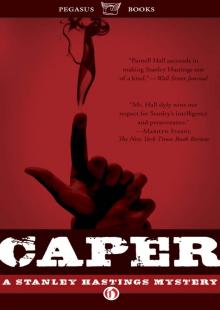 Caper
Caper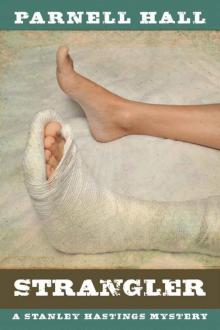 4 Strangler
4 Strangler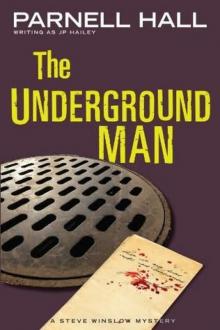 The Underground Man sw-3
The Underground Man sw-3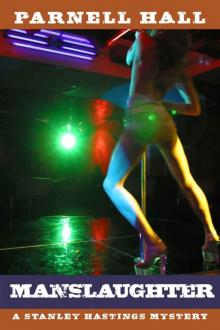 Manslaughter (Stanley Hastings Mystery, #15)
Manslaughter (Stanley Hastings Mystery, #15)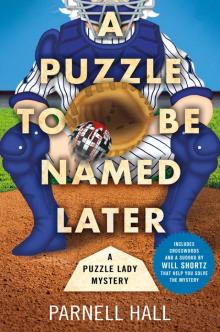 A Puzzle to Be Named Later--A Puzzle Lady Mystery
A Puzzle to Be Named Later--A Puzzle Lady Mystery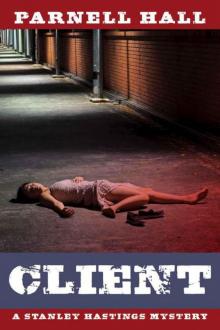 05-Client
05-Client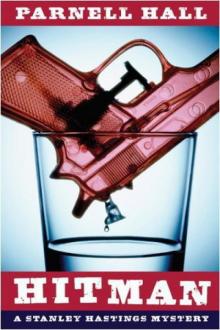 16 Hitman
16 Hitman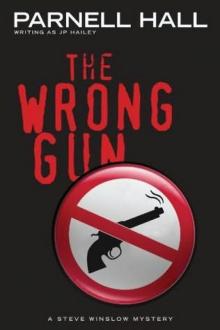 SW05 - The Wrong Gun
SW05 - The Wrong Gun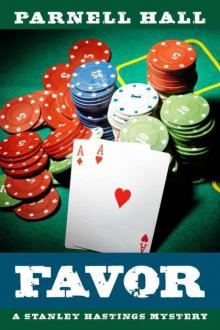 3 Favor
3 Favor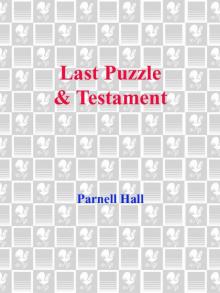 Last Puzzle & Testament
Last Puzzle & Testament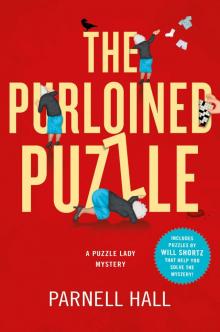 The Purloined Puzzle
The Purloined Puzzle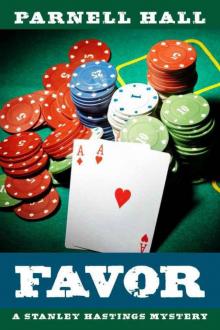 03-Favor
03-Favor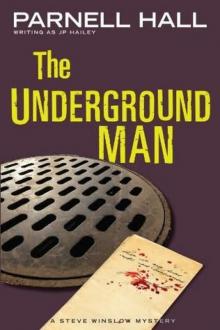 SW03 -The Underground Man
SW03 -The Underground Man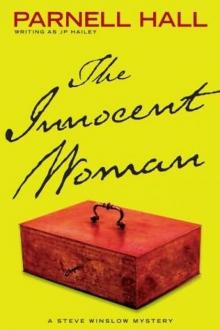 The Innocent Woman sw-6
The Innocent Woman sw-6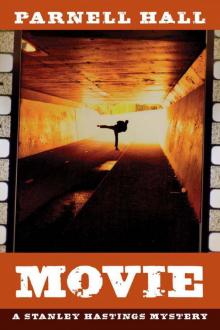 10 Movie
10 Movie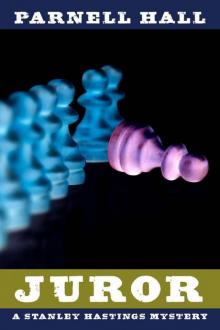 06-Juror
06-Juror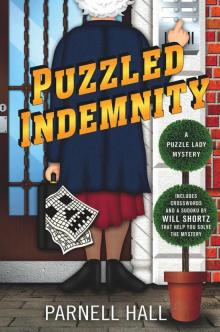 Puzzled Indemnity
Puzzled Indemnity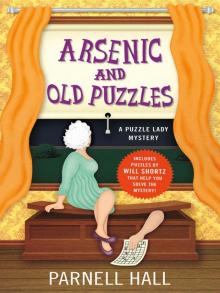 Arsenic and Old Puzzles
Arsenic and Old Puzzles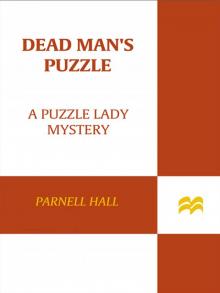 Dead Man's Puzzle
Dead Man's Puzzle Safari
Safari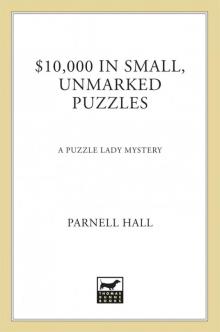 $10,000 in Small, Unmarked Puzzles
$10,000 in Small, Unmarked Puzzles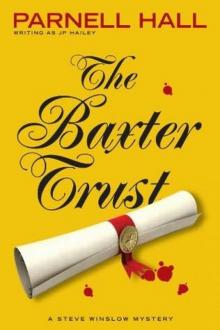 The Baxter Trust sw-1
The Baxter Trust sw-1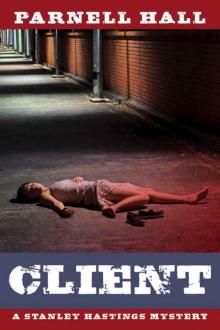 5 Client
5 Client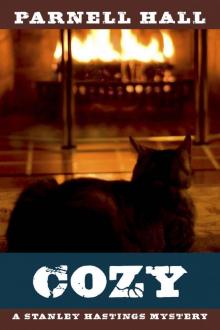 Cozy (Stanley Hastings Mystery, #14)
Cozy (Stanley Hastings Mystery, #14)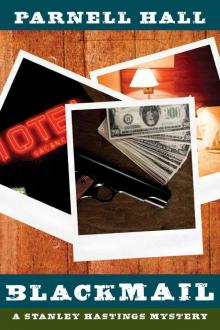 Blackmail
Blackmail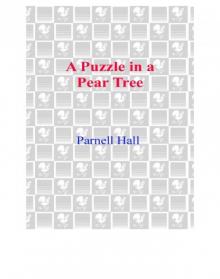 A Puzzle in a Pear Tree
A Puzzle in a Pear Tree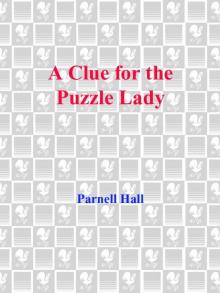 A Clue for the Puzzle Lady
A Clue for the Puzzle Lady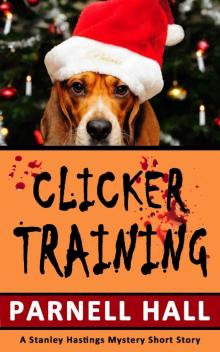 Clicker Training (Stanley Hastings Mystery, A Short Story)
Clicker Training (Stanley Hastings Mystery, A Short Story)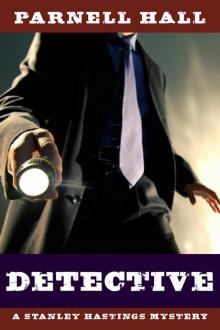 Detective (Stanley Hastings Mystery Book 1)
Detective (Stanley Hastings Mystery Book 1)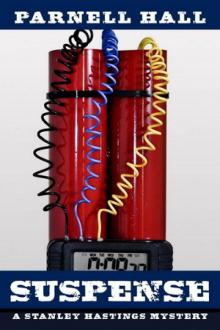 13 Suspense
13 Suspense